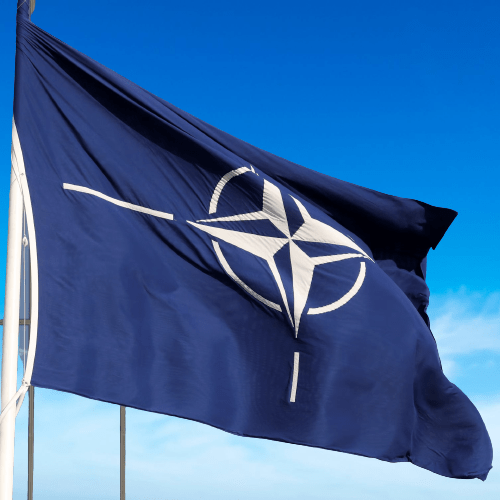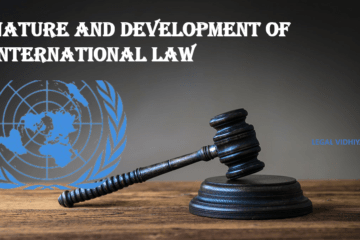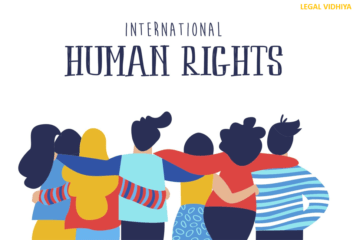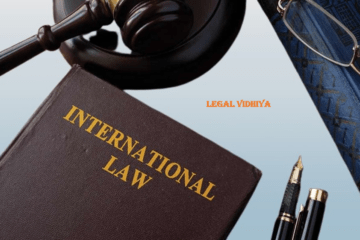
This article is written by Chitrankshi Joshi, an intern under Legal Vidhiya
ABSTRACT:
This article is regarding the bombing of Yugoslavia by the North Atlantic Treaty Organisation (NATO). It also consists the aftermath of it and ends to the point that why these bombings were illegal according to the international law.
INTRODUCTION:
The North Atlantic Treaty Organisation (NATO) started air strikes against Yugoslavia with the bombing of Serbian Yugoslav province of Kosovo on 24 March, 1999 and it lasted till 10 June 1999. These stopped when an agreement was made for the withdrawal of Yugoslav armed forces from Kosovo and the establishment of a UN peacekeeping mission (United Nations Interim Administration Mission), in Kosovo.
This intervention of NATO caused Yugoslavia to kill Albanians, which caused them to move to neighbouring countries and caused the destabilization of the region.
REASON: Yugoslavia’s actions were condemned by international organisations like the UN. NATO, etc. Earlier, it was said that NATO used force against Yugoslavia as it refused to sign the Rambouillet Accords.
Article 2(4) of U.N Charter:
All the 5 NATO member states are also the members of the United Nations and hence they are compulsorily required to abide by the provisions which are set forth the Charter of the U.N. It allows the states to use armed forces against other states only when: when they are required or allowed by a resolution of the Security Council, or when the state acts in self defense.
The NATO bombing comes under the “use of force against the territorial integrity” of Yugoslavia and was therefore, a violation of the U.N. Charter.
The Security Council, also, didn’t authorize the use of force against Yugoslavia. This action of NATO would have been legal only if it was under article 51 (self-defence) of the U.N. Charter or if it was permitted by some rule of the customary international law which is not in conflict with the NATO states obligations under article 2(4).
Article 51 of U.N. Charter:
Nothing in the present charter shall disrupt or take away the inherent right of individual or collective self-defence if any armed attack takes place against any member of the United Nations, until the Security Council has taken necessary measures to maintain international peace and security.
The International Court of Justice says that only a threatening presence of a country is insufficient to bringnuu Article 51’s right to collective self defense.
There is a test named ‘the Caroline test’ that came after the Caroline case, 1842. It says that anticipatory self defense be proportional and that, there should be a real necessary and instant need with no other alternative left.
Though there may be an instant need, there were other options too for NATO and there would also have been enough moments for deliberation. NATO would have surely contemplated some form of action against Yugoslavia over the Kosovo situation, months before taking its action. NATO assured Albania, Bulgaria, Macedonia, Romania and Slovia that it would take the Yugoslavian attack on them very seriously. A formal treaty is not important for establishing collective self-defence, informal agreements like this are probably sufficient.
The North Atlantic Treaty:
Article 1 of this treaty imposes the following two obligations upon NATO that would have been violated by Yugoslavia bombing:
Firstly, the parties undertake to settle any international disputes in which they are involved, peacefully and in such a manner in which the international peace, justice and security are not endangered.
The NATO members have made many efforts, both individually and collectively, to settle the disputes with Yugoslavia peacefully. But bombing any country is extremely dangerous for international peace and security even if it was done to preserve justice, peace and security.
Secondly, the parties also undertake to refrain from threat and use of any force in matter inconsistent with the purpose of the United Nations, in their international relations.
The Preamble of the U.N. Charter and Article 1 set forth its purposes. They include re-affirmation of faith in fundamental human rights, dignity and worth the humans as well as promotion of social progress and better standards of life. They also include, development of friendly relations among all the nations based on respect for the concept of equal rights and self-determination of people and the achievement of international co-operation in solving international problems of any humanitarian character,
To an extent, NATO stated its reasons accurately like the protection of the rights of the Kosovars and hence its action is consistent with the second part of The North Atlantic Treaty.
Article 5 of the North Atlantic Treaty:
This talks about right to collective self defense. This uses the same ‘armed attack’ language used in article 51 of the U.N. Charter. This possibly indicates the intent of NATO members to abandone the right to anticipatory collective self defense. Article 7 gives, the primary responsibility for maintaining international peace and security, in the hands of the Security Council. This article also has a provision which says that the treaty does not effect, in any way, the rights and obligations under the Charter of Parties which are the members of the United Nations. This would also prevent the consideration of article 5 as intending to adopt a limitation on the right of anticipatory collective self defense.
CUSTOMARY INTERNATIONAL LAW:
This action of NATO arises two questions: a) whether there now exist a custom of exercising anticipatory collective self defense under article 51, b) whether there exists a custom of armed intervention to prevent genocide or is coming into existence.
a) Customary use of anticipatory collective self defense:
All the actions of the states, taken individually or by any formal or informal grouping have received a strong negative reaction, internationally. They were condemned by the General Assembly, Security Council (attempted), complaints by the Secretary General and adverse determinations by International Court of Justice.
It seems that there is an expectation that allows anticipatory collective self defense actions by regional security or self defense organizations where they are not wholly dominated by any single member. NATO is such a kind of organization and includes many powerful states, some of which are permanent members of the Security Council. Hence the action of NATO is valid under the exercise of the right to anticipatory collective self defense as it is developed via state practice since the year 1945.
b) Armed intervention to prevent genocide:
Not every genocide threatens the interests of a strong nation or regional security organisation, there exists a growing feeling or want that a right of intervention to prevent genocide should exist. Many people believe that there is a moral need of an armed intervention to protect people from genocide from their own government and they consider it as morally justified too. Some also say that customary international law already given rise to a normative expectation which has legitimized the actions of this nature.
The U.N. Charter was adopted following the after effects of the World War II. many worst atrocities to the World War II were committed by the Axis governments, mainly the German government against the people of its own. But the U.N. Charter contains no provisions that allow the use of any kind of force to prevent such atrocities.
Today, it is a very minor view that humanitarian intervention is permissible. Large scale acceptance of the action of the NATO indicates the emergence of a normative expectation which says that intervention to prevent genocide or forced expulsion of any population does not violate the international law.
The Security Council itself emphasized the need to prevent the happening of any such event in the future, in Resolution 1199. Even on the efforts of some of the members, the security council has not condemned the NATO bombings.
AFTERMATH:
It was concluded that as many as 528 Yugoslavian civilians were killed in the Operation Allied Force. There were also refugees among those victims. 181 NATO strikes were reported against tanks. But this operation caused lesser damage to Yugoslavian military than it was thought to do because of the use of camouflage and decoys.
It was also said that the bombing campaign caused a damage of around 100 billion dollars during that time. It caused damage to the bridges, roads, railways, schools, homes, monuments, etc. hospitals and healthcare facilities were also damaged severely.
The use of depleted uranium brought the risk of future contamination of the groundwater. The bombings ended on 11th June and the Russian paratroopers became the first peacekeeping force in the war zone.
CONCLUSION:
Presently, the actions of NATO violate the international law unless it has a right to anticipatory collective self defense under article 51 of the U.N. Charter or unless it was very properly exercised. It seems that the NATO has a right of anticipatory collective self defense and also that Yugoslavia’s actions in Kosova seemed to pose a grave threat to the stability of that respected region.
But it does not seem that there is any customary international law norm allowing the use of force by states to prevent the other states to disturb, kill, expell or cause any harm to their own population. A higher approval is needed on the part of the other states, for the actions of NATO to bring a change in the customary international law.
REFERENCE:
Digitalcommons.pace.edu




0 Comments